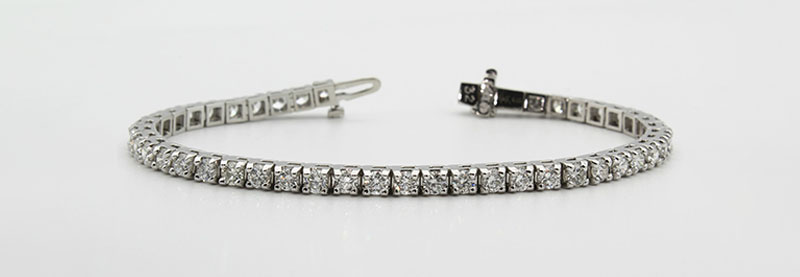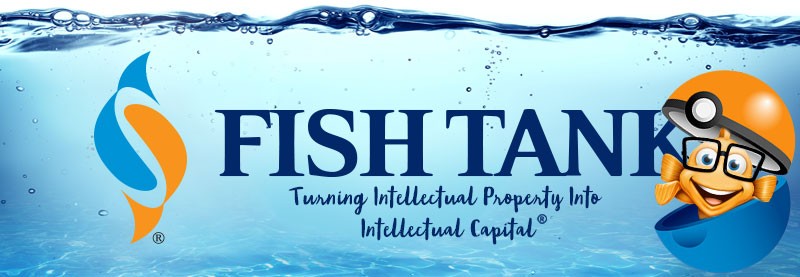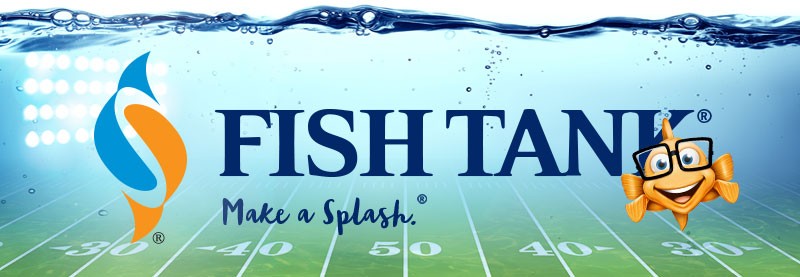Intellectual Property Insights from Fishman Stewart
Mini Article – Volume 24, Issue 3
Share on Social

If You Like It Then You Shoulda Put a © on It.
By Kristyn Webb
Valentine’s Day is just around the corner and jewelry sales are usually around $6 billion USD in the United States alone. In 2021, the US Customs and Border Protection agency seized over $1 billion USD worth of counterfeit pieces of jewelry. One jewelry artist, David Yurman, who makes braided cable jewelry, has been battling imitators for many years. A few years ago, he won a $1.5 million judgment against several online stores selling counterfeit goods.
One of the strategies behind his success at shutting down counterfeiters is that he has obtained copyright registrations for several of his designs, in addition to trademark and trade dress protection. Trademark and trade dress infringement hinges on the potential for consumer confusion, and where a bold infringer clearly indicates that its product is a knockoff or “designer inspired,” the potential for consumers to believe they are purchasing legitimate products may be difficult to prove. A claim for copyright infringement, on the other hand, does not require evidence of potential consumer confusion, but rather looks at the similarity between the copyrighted design and the accused design.
Yurman’s website also has a place where consumers can report counterfeits. In addition to potentially damaging a brand, counterfeits can be harmful to consumers. Knockoff jewelry can turn your skin green, and it also can contain metals and other substances that are absorbed into the body and can lead to long-term health issues. While intellectual property theft is often thought of as a “victimless crime” the sale of counterfeit goods has been linked to funding criminal activities like human trafficking, terrorism, and money laundering.
So, if you are looking for the perfect gift this year that expresses your feelings for your loved one, buy legitimate and authentic items. Real love is not very well expressed with fake goods.
Kristyn Webb is the Group Leader of Fishman Stewart’s Copyright Practice Group, and holds a Master’s Degree in Copyright Law from King’s College London.



Published February 9, 2024
Related Content from Fishman Stewart
In a recent decision, the U.S. Court of Appeal for the Eighth Circuit affirmed a jury verdict holding that the use of the "Success Kid" meme by a congressman's reelection campaign for fundraising purposes did not qualify as fair use.
In February 2024, proposed legislation was introduced in US House of Representatives which would extend copyright protection to golf courses. The bill is titled “Bolstering Intellectual Rights against Digital Infringement Enhancement Act” or the “BIRDIE Act”.
June is Pride Month, which honors the 1969 Stonewall Uprising in Manhattan and recognizes the impact that lesbian, gay, bisexual, and transgender (LGBTQ+) individuals have had on history locally, nationally, and internationally. The United States Patent and Trademark Office flies the Pride Flag and promotes the Pride community’s contributions with programming offered annually.
June is Pride Month. This year we are celebrating with some IP tips for drag performers! Drag performers can protect their intellectual property by registering the copyrights in their original works of music, choreography, and comedy sketches.
You’re rarely more than a few yards from Finny’s favorite chips, semiconductor chips to be precise. But what exactly is a semiconductor chip?
"May the 4th Be With You," also known as Star Wars Day, takes place annually on May 4th. The phrase is a pun on the iconic Star Wars catchphrase "May the Force be with you."
First, a big “thank you” to all our readers who have given feedback on our newsletter. We appreciate your interest and insights. It is always a treat to hear from you! Second, we wanted to provide you with updates on some of our most popular articles
“Palworld”— a computer game created and published by Japanese developer Pocket Pair. Released as an early access game in January 2024, it sold over seven million copies on the computer platform Steam in the first five days and had nearly 20 million players in the first two weeks.
This year’s Super Bowl featured a thrilling overtime victory for the Kansas City Chiefs over the San Francisco 49ers. With estimates as high as 123 million viewers, America's premier sporting event also serves as a grand stage for creativity and intellectual property protections that enhance the game’s success.
Valentine’s Day is just around the corner and jewelry sales are usually around $6 billion USD in the United States alone. In 2021, the US Customs and Border Protection agency seized over $1 billion USD worth of counterfeit pieces of jewelry.
IDENTIFYING, SECURING AND ADVANCING CREATIVITY®











